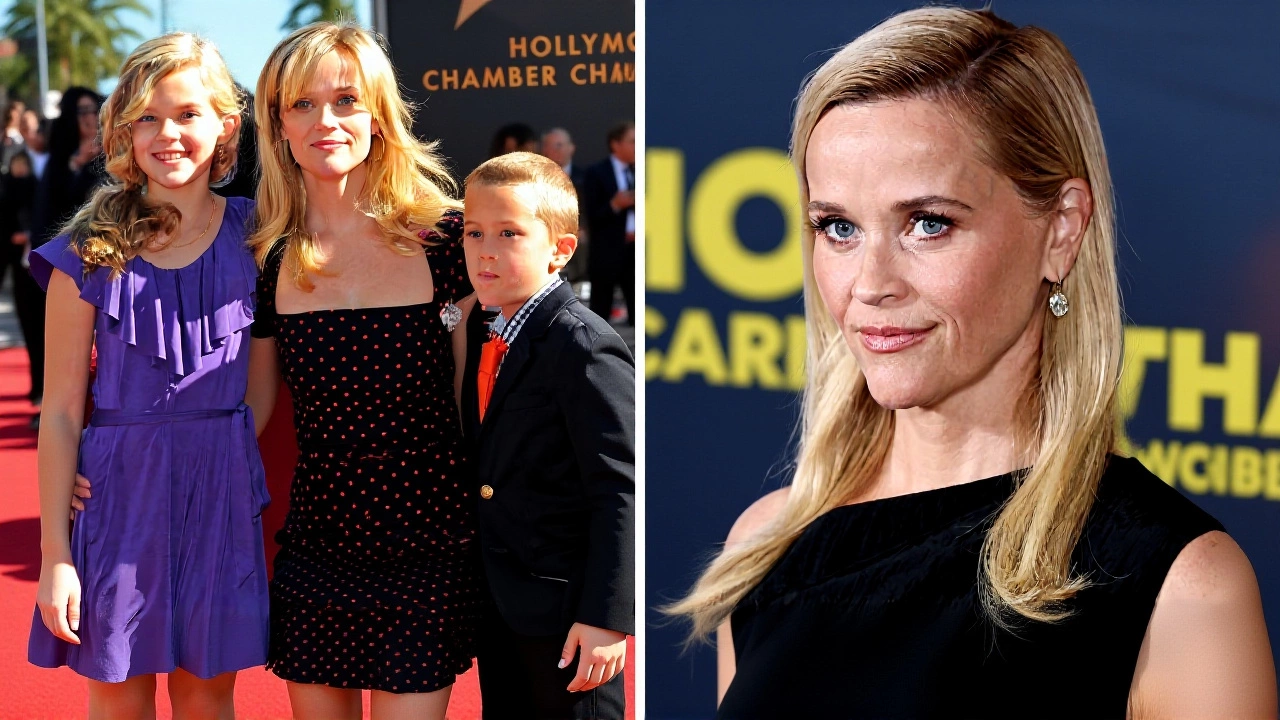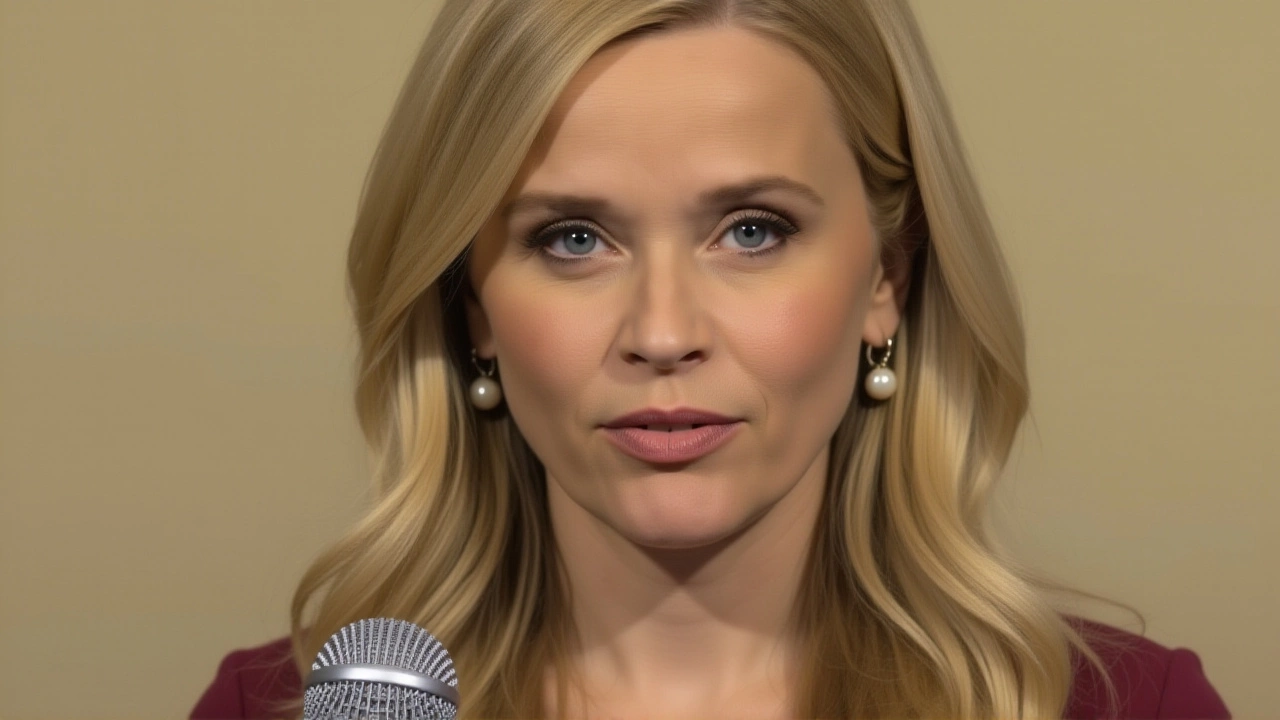Reese Witherspoon Opens Up on Young Motherhood Challenges in Hollywood
 Oct, 18 2025
Oct, 18 2025
When Reese Witherspoon, actress and producer sat down for The InterviewNew York City podcast, she opened up about becoming a mother at 23 while married to Ryan Phillippe. The conversation, produced by The New York Times, revealed how early motherhood collided with a rapidly rising Hollywood career, sparking a dialogue that still reverberates in the industry today.
Early Years: Balancing Baby Ava and a Rising Career
In 1999, the 23‑year‑old Witherspoon gave birth to daughter Ava Phillippe just as she was landing roles that would define the next decade. "There was so much I didn’t know," she recalled, noting that her naiveté felt like a secret weapon – until counsel from managers warned, "This is going to be really hard on your career." The warning, she said, echoed a prevalent Hollywood mantra: women who chose motherhood would be sidelined.
That year, Witherspoon was juggling auditions, press junkets, and a newborn’s sleep schedule. She missed out on a supporting role in a 2000 romantic comedy because the shoot clashed with Ava’s pediatric appointments. "I turned down opportunities that seemed ‘too risky’ for my daughter’s routine," she said, underscoring the daily calculus young mothers faced.
Industry Pressure: The Hollywood Narrative on Young Mothers
At the time, a 1999 industry survey from the Hollywood Actors Union found that 68 % of female respondents believed motherhood would limit their casting prospects. By contrast, a 2023 study by the Center for Women in Media reported that 72 % of women in film still feel pressure to prioritize family over career, showing how little the sentiment has shifted.
Witherspoon’s story is a microcosm of that culture. When Legally Blonde unexpectedly vaulted her to stardom in 2001, she described the moment as "scary" – not because of fame, but because the sudden demand for her time meant even more missed family moments.
"I wasn’t going to beg for parts; parts were coming to me," she said, reflecting the paradox of success: the more in demand you become, the less flexibility you have to be present at home.
From Legally Blonde to Hello Sunshine: Evolution of a Career
After cementing her status as a box‑office draw, Witherspoon leveraged her clout to launch Hello Sunshine in 2016, a Santa Monica‑based media company dedicated to female‑driven storytelling. The venture marked a strategic pivot: rather than solely acting, she could champion projects that reflected her values and, crucially, offer a more family‑friendly schedule.
One of Hello Sunshine’s early successes, the limited series Big Little Lies, aired in 2017 with a production schedule that allowed Witherspoon to work on set during school hours and be home for dinner. "It felt like I finally found a way to have both," she told the podcast.
That model inspired other studios to consider "mom‑friendly" filming windows, though the change has been uneven. Independent surveys indicate only 34 % of major productions now label themselves as family‑accommodating.

Current Parenting Realities: Exhaustion and Unpaid Labor
Fast‑forward to today: the 49‑year‑old actress admits that parenting now feels "exhausting" and "completely wrung out." After 25 years of balancing career and family, she’s learned to accept that she can’t attend every soccer game or volunteer for every school event.
"I’m grateful for the women who show up and do the unpaid labor," Witherspoon said, pointing to a broader systemic issue. Research from the Journal of Labor Economics shows that mothers in the U.S. perform an average of 1,300 hours of unpaid household work per year, compared with 575 hours for fathers.
She also highlighted the cultural expectation that mothers should be the "perfect" caretakers, a standard that fuels burnout. "You can’t be everywhere, and that’s okay," she emphasized, urging a shift in how society values caregiving.
What This Means for Working Mothers in Hollywood
Witherspoon’s candid recollections arrive amid a broader movement for gender equity in entertainment. The recent #MeToo‑style campaign "Moms on Set" urges studios to adopt flexible scheduling, on‑site childcare, and transparent parental‑leave policies.
Industry insiders predict that if major studios adopt even a handful of these measures, the talent pool of working mothers could expand by up to 15 % over the next five years, according to a 2024 report by the Motion Picture Association.
While Witherspoon herself may have carved a unique path, her story serves as both a cautionary tale and a hopeful blueprint for future generations of women who refuse to choose between a career and a family.
Frequently Asked Questions
How did Reese Witherspoon’s early motherhood affect her film choices?
She turned down several roles that conflicted with her newborn’s schedule, notably a supporting part in a 2000 romantic comedy, and later chose projects that offered more predictable filming windows, such as the limited series produced by Hello Sunshine.
What systemic pressures do Hollywood mothers still face?
Surveys show that 72 % of women in film feel compelled to prioritize family over career, and mothers still perform roughly double the unpaid household labor of fathers, creating ongoing burnout and limiting career advancement.
What initiatives are emerging to help working mothers in entertainment?
The "Moms on Set" campaign pushes studios to offer flexible shooting schedules, on‑site childcare, and transparent parental‑leave policies, aiming to increase the participation of mothers in high‑profile productions by up to 15 % over five years.
How has Hello Sunshine changed Witherspoon’s work‑life balance?
By producing content that aligns with her values and offers family‑friendly schedules, Hello Sunshine allowed Witherspoon to be on set during school hours and still be home for dinner, a flexibility she says was rare in traditional studio contracts.
What does Witherspoon say about the ‘perfect mom’ expectation?
She stresses that women can’t be everywhere—at every soccer game, volunteer event, or meeting—and that accepting this limitation is essential for mental health and realistic parenting.
